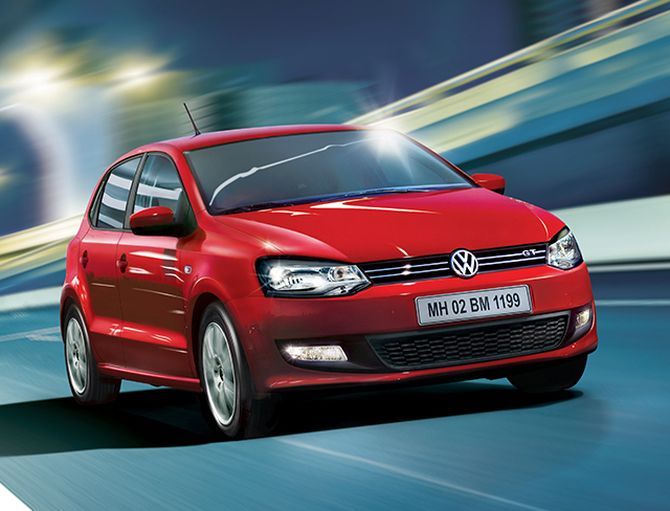 The wholesale dispatches to dealers by Volkswagen India is estimated to have declined 21 per cent last month.
The wholesale dispatches to dealers by Volkswagen India is estimated to have declined 21 per cent last month.
The domestic sales of German auto major Volkswagen’s India unit is learnt to have dropped in September, a decline after seven months of consistent growth.
This could be because of the impact of a global emission-fudging crisis involving the company since September 18.
The wholesale dispatches to dealers by Volkswagen India, which sells products like Polo, Jetta and Vento, is estimated to have declined 21 per cent last month.
September is usually a month of high dispatches for car makers, as dealers stock adequately for festival demand in the following months.
The company, which had been sharing monthly data for several past months, did not announce the numbers for September.
But industry watchers pegged the sales number for the month at about 3,230 units, the lowest in 15 months.
This was 21 per cent lower than the company’s sales in the same month a year ago.
By comparison, the overall passenger vehicle industry’s domestic sales during the month were 4.6 per cent more than those in September 2014.
It was the first time since January that Volkswagen India’s year-on-year sales growth in a month was lower than the industry’s growth.
“The customer’s confidence in a brand is shaken when such incidents (the data-fudging row in this case) take place.
"That reflects in sales eventually,” said a senior marketing executive at a rival car manufacturer. Volkswagen India had not replied to an emailed questionnaire sent by Business Standard till the time of going to press.
In the US, the market where the crisis originated for Volkswagen, the company’s sales in September were nearly unchanged over a year ago (0.56 per cent higher).
By comparison, rivals like Toyota, Honda and Hyundai registered double-digit growth rates during the month.
Last week, a Volkswagen India spokesperson had said in response to a Business Standard query that “the production and sales of our cars are going in line with the plan.
"All vehicles with customers at present are safe”.
Volkswagen’s India subsidiary had sold 45,018 vehicles in the domestic market in the year ended March 31.
It controls less than two per cent share of the 2.6-million domestic passenger vehicle market.
The company’s sales had declined over 14 per cent last year.
Volkswagen also exports vehicles manufactured in India.
In fact, its exports are more than its domestic sales.
The company exported 64,994 vehicles last financial year and was the fifth-largest exporter from India.
Export data for September this year, though, was not available.
In the first five months of the current financial year, the car maker grew its sales by over 23 per cent, helped mainly by its Cross Polo and Jetta, but continued to have a domestic market share of under two per cent.
The bigger players like Maruti and Hyundai reported double-digit sales growth rates for the Indian market.
Volkswagen has a vehicle manufacturing plant in Chakan, near Pune.
It had invested Rs 3,800 crore (Rs 38 billion) in this plant, which became operational in 2009 and currently has an annual capacity to produce 130,000 vehicles.
Image: Volkswagen Polo. Photograph: Kind courtesy, Volkswagen










